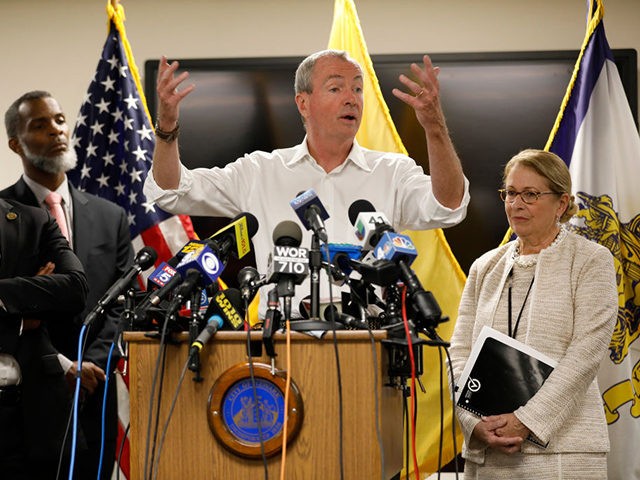The U.S. Supreme Court on Tuesday handed a victory to clerics battling New Jersey Gov. Phil Murphy’s (D) executive orders restricting houses of worship to 25 percent capacity, while secular businesses operate with no capacity limits.
The Thomas More Society, which represents Rev. Kevin Robinson, a parish priest, and Rabbi Yisrael Knopfler, who leads an Orthodox Jewish synagogue, announced in a statement:
The high court granted the writ of certiorari before judgment on appeal in the Third Circuit and vacated the original judgment of the United States District Court for the District of New Jersey, denying an injunction against the restrictions to Reverend Kevin Robinson and Rabbi Yisrael Knopfler who preside over small houses of worship in the state.
In a one-paragraph order, the Court stated:
The application for injunctive relief, presented to Justice Alito and by him referred to the Court, is treated as a petition for a writ of certiorari before judgment, and the petition is granted. The October 2 order of the United States District Court for the District of New Jersey is vacated, and the case is remanded to the United States Court of Appeals for the Third Circuit with instructions to remand to the District Court for further consideration in light of Roman Catholic Diocese of Brooklyn v. Cuomo …
As a result of the Supreme Court’s order, the case will be returned to the District Court and reconsidered in view of the High Court’s ruling at the end of November regarding the Brooklyn diocese’s lawsuit against Gov. Andrew Cuomo (D-NY).
“This is one of dozens of lawsuits across the country pitting houses of worship, their leaders, and congregants against gubernatorial abuse of power,” said Thomas More Society special counsel Christopher Ferrara in a statement.
He added the order demonstrates the Supreme Court wants to ensure houses of worship receive “equal treatment with secular activities,” even if Murphy’s edicts are not nearly as “severe” as those of the governors of New York and California.
Ferrara explained how Murphy’s executive orders treat worship differently from secular businesses:
Under Murphy’s executive orders in New Jersey, houses of worship are limited to 25% capacity, while Costco, Walmart, factories, schools, and other venues all get better treatment. What is particularly significant in this case is that the high court is not only recognizing the error of outright bans or virtual bans on houses of worship which were at issue in Roman Catholic Diocese of Brooklyn v. Cuomo in New York and Harvest Rock v. Newsom in California, but also acknowledges that the disparately applied capacity percentage limits also violate the Free Exercise clause.
The following indoor gatherings may continue under the current rules – limited to 25% of a room’s capacity, up to 150 people:
☑️Religious services/celebrations and political events
☑️Weddings
☑️Funerals/memorial services
☑️Performances— Governor Phil Murphy (@GovMurphy) November 16, 2020
“We are getting a very clear message from the United States Supreme Court that government cannot set up any rules that apply to places of worship, or worship activities, but not to other, comparable secular activities,” he said. “This is the very crux of religious discrimination and a blatant abuse of the United States Constitution and its Amendments.”
Christian litigation firm Liberty Counsel represented Harvest Rock Church in its successful lawsuit against Gov. Gavin Newsom (D-CA).
“The impact of the Supreme Court rulings is a welcome relief,” said Liberty Counsel Chairman Mat Staver in a statement. “Tyrannical governors must let the captives go free. Some governors have become power hungry and now the courts are agreeing that it’s past time to end these restrictions on places of worship.”

COMMENTS
Please let us know if you're having issues with commenting.